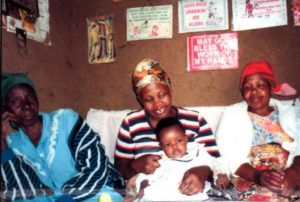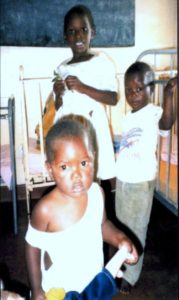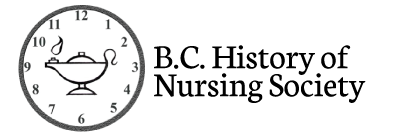Global Health Interest Group
(1990-2009)
Administrative History

The Global Health Interest Group (GHIG) champions the movement towards “affordable, accessible and equitable health care enabling people worldwide to increase control of and improve their own health.” In partnership with the CNA, they have participated in the planning and implementation of conferences and workshops over the years, focusing on International Health, Women & Government.
The organization was formed in the fall of 1990 when a group of seven nurses began meeting to share their experiences working in developing countries. After forming an alliance with Oxfam Canada, the group decided to apply for membership as a Professional Practice Group in what was then the Registered Nurses Association of BC (now the College of Registered Nurses of BC). The group developed a mandate, Terms of Reference and objectives, and began examining the possibilities of international partnerships. In May 1991, the group held their first Annual General Meeting as a PPG of RNABC.
GHIG participated in workshops in collaboration with RNABC, Oxfam. and the Canadian Society for International Health. In 2007, GHIG proposed the creation of the Canadian Association for International Nursing (CAIN) in order to affiliate with groups in other provinces who are interested and involved in international nursing and global health. The GHIG is currently a chapter of CAIN.
Scope and Content

The fonds consists of about 10 cm of textual records dating from 1990-2009. By-laws and records of annual and executive meetings include meeting attendance records and other information. Extensive documentation of the partnership with Brazil and the “Living and Nursing Overseas” workshop are included, along with information on other partnerships and projects in Kenya, Uganda, Zambia, Nepal, Afghanistan and other locations. Newsletters from 1991-2008 document other activities.
- No restrictions apply.
- A finding aid is available.
